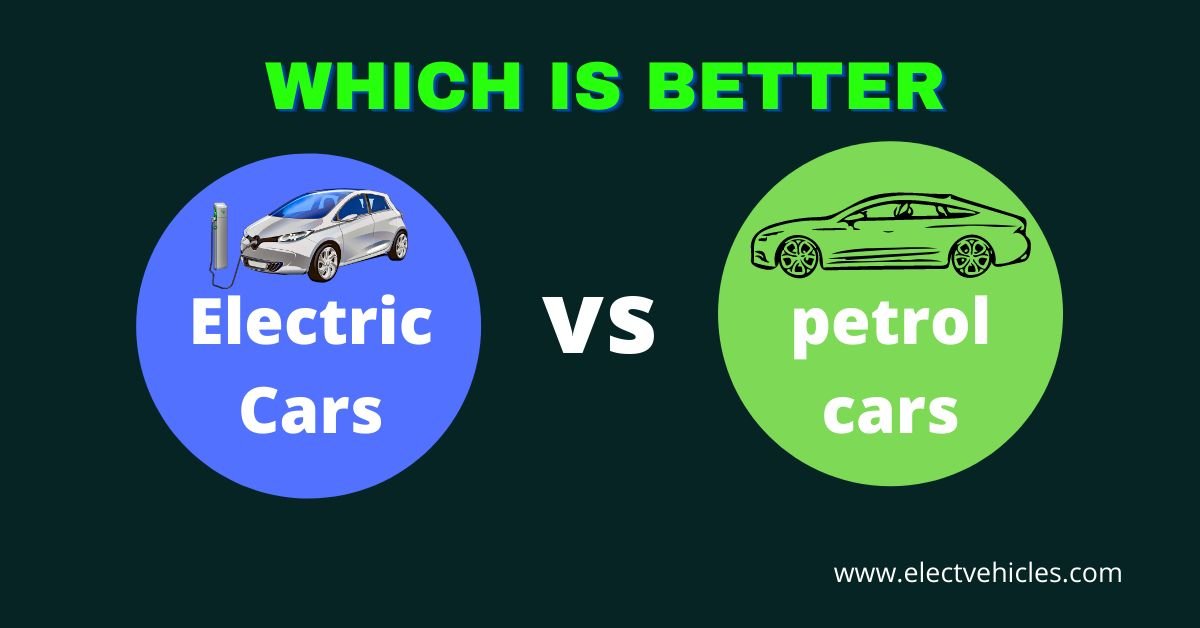electric cars vs petrol cars
The first question you may be asking yourself is: which is better – petrol or an electric car? Both have their advantages and disadvantages. While an internal combustion engine is the most reliable option for everyday use, the internal combustion engine does produce CO2 emissions. In fact, an electric vehicle doesn’t even have an exhaust pipe! So, which is better? There are pros and cons for both. Let’s take a closer look at each.

Pros and Cons of Petrol Or Electric Car
Obviously, the two have their advantages and disadvantages. The main benefits of an electric vehicle are its range and quietness. The disadvantages of an electrically powered vehicle are its high upfront costs and reduced range. Nevertheless, both options can be viable options for your lifestyle. You can find out which one is more environmentally friendly. If you’re unsure, consider the pros and cons of both vehicles and make an informed decision.
As the price of both cars is high, they can be expensive. However, electric vehicles are more affordable than petrol cars. They are comparatively easier to maintain, as they don’t require any mechanical parts and don’t need regular servicing. The other advantage of electric vehicles is that they have fewer moving parts, which reduces their cost of ownership. A Tesla Model S can travel as far as 647km on a single charge.
Despite the price, the maintenance cost of an electric vehicle will be lower. As there are fewer moving parts in an EV, it will require less servicing and repairs. Another consideration is ‘range’, which refers to how far a car can travel on a single tank of petrol. The Toyota Land Cruiser Prado has a maximum range of 1,875km on a full tank, while a Tesla Model S will travel 647km.
Compared to petrol cars, electric vehicles require much less maintenance. Because they have fewer moving parts, electric vehicles have fewer moving parts and require less servicing. However, a car’s range is also a crucial factor in determining whether it’s a good choice for you. While a Prado can cover up to 1,875km on a full tank, the Tesla Model S has a top range of just 647km.
Electric cars are cheaper to produce, with fewer moving parts. They will also require fewer services. Another important factor is range. For example, a Prado can cover up to 1,875km on a full tank of petrol. In contrast, a Tesla Model S can reach up to 647km. This means that an electric car is a much more affordable option. So, which is better petrol or electric car?
Despite the benefits of electric vehicles, there are some disadvantages to both. The electric version will cost you more money, but it will be more energy-efficient in the long run. It will also be less expensive in the long run. It will be cheaper to own and maintain than a petrol car, so you’ll save money in the long run. With a hybrid, you won’t have to worry about refueling.
Among the advantages of an electric vehicle, petrol vehicles are more expensive to buy. While electric cars are cheaper to run than their petrol counterparts, they are still more expensive to maintain. EVs are expected to remain more expensive for the next five years. For example, a Nissan Leaf will cost PS27,995 more than a petrol Ford Focus. But a Tesla Model S will cost more, as it needs more power to operate.
The main disadvantages of electric vehicles are that they have more moving parts and are expensive to maintain. On the other hand, electric vehicles have more benefits than their petrol counterparts. They are more expensive than a petrol car. Further, electric vehicles are considered safer to use than petrol cars. EVs can be easily stolen and may cost a lot of money to repair or replace. So, which is better – a hybrid or a petrol car?
A petrol car is usually cheaper to run. However, it can cost more to install Level 2 charging stations and recharge batteries. An electric car can be expensive to purchase, but it’s worth it in the long run. The EVs have limited service availability compared to their petrol counterparts. The battery can also be expensive to replace. They can also be harder to repair than a petrol vehicle. This is a disadvantage.
Generally, petrol cars have a longer service life, but they also emit high amounts of CO2. They’re cheap to buy but they’re also a heavy burden on your wallet. Compared to electric cars, petrol cars are cheaper to maintain. Moreover, electric cars are easier to service and maintain. The cost of running a petrol car is lower than that of an electric one. The petrol car has a long-range. Unlike an electrically powered car, the hybrid has a longer range.
Read More:
